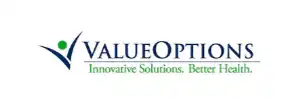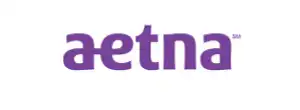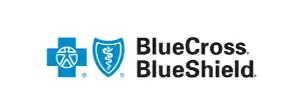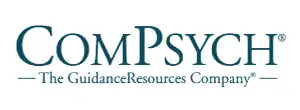OCD Treatment Program In Nashville, TN
Obsessive-compulsive disorder (OCD) is a mental health disorder characterized by repetitive, unwanted, intrusive thoughts, obsessions, and irrational, excessive urges to do specific actions, which are compulsions. Even when those with this anxiety disorder know their obsessions and compulsions are unreasonable or don’t make sense, they find it difficult to stop.
OCD is a public health concern in Tennessee. From February 1 to 13, 2023, 37.3% of Tennessee adults reported mental health disorder symptoms, which indicates the need for effective treatment.
Southeast Addiction Center is fully licensed and JCAHO accredited. We are also Joint Commission-accredited, which means we go above and beyond to raise the standard of safety and quality of care for our clients. Our OCD treatment program in Nashville, TN, is a top-rated rehab center focusing on individualized care and recovery.
Why Choose Southeast Detox for OCD Treatment?
Our individualized therapy focuses on each client’s specific needs. Our goal is to discover the particular concerns of each of our clients. Working with a therapist, our clients create an individualized plan to meet the needs of each individual. In collaboration, we form a plan of action beyond a standard model with long-term recovery as the end goal.
Because OCD affects each person differently, a customized approach needs to be considered. We can then uncover underlying issues that increase the chances of long-term recovery, whether through therapy, medication, holistic methods, or a combination of services.
Research has found a correlation between substance abuse and OCD, and those with the mood disorder tend to develop substance abuse disorders at a higher rate. The severity for each person depends on the nature of their anxiety disorder and other underlying or preexisting conditions.
Several statistics support the need for effective treatment resulting from OCD and co-occurring substance abuse. For instance, according to the National Institute of Mental Health, 1.2% of the US population suffers from OCD. Also, of veterans with an OCD diagnosis from 2010 to 2016, 36.70% had a SUD diagnosis.
OCD Treatment Services
The primary forms of therapy for OCD include cognitive behavioral therapy, individual therapy, and group therapy. OCD services should be rendered by licensed therapists, psychiatrists, and other mental health professionals.
Cognitive Behavioral Therapy
Cognitive behavioral therapy (CBT) helps our clients recognize and challenge negative thought patterns. CBT is generally a short-term treatment over multiple sessions for about an hour each. Most of our clients participate in up to 20 sessions; however, we customize the content and number of sessions to each client’s specific needs.
During a session, you can expect your therapist to begin by asking questions about your past, addictive tendencies, symptoms, and concerns. Using these questions, the therapist will isolate problematic thoughts and behaviors and work with you to incorporate strategies to change them.
CBT is important to OCD treatment because it increases self-awareness, improves problem-solving skills, and reduces symptoms.
Individual Therapy
Individual therapy allows for a personalized approach to treating OCD so that daily life activities are carried out without compromise. Our therapists consider each client’s symptoms, experiences, mental health concerns, and personal goals.
Individual therapy is a practical approach to OCD treatment because of the personalized support each of our clients receives. We know that recovery isn’t one-size-fits-all, nor is our individual therapy approach.
OCD Treatment Programs
For individuals struggling with OCD, substance abuse, or other conditions, we offer comprehensive programs that target all aspects of distress within the individual in a structured and flexible way. Our options include intensive outpatient and partial hospitalization programs.
Intensive Outpatient Program (IOP)
Our intensive outpatient program (IOP) allows clients to have a flexible treatment schedule where they can continue daily activities and still receive care. Our clients choose the schedule that works with their outside obligations. IOP provides more support than traditional outpatient programs because therapy sessions are more frequent, and clients can participate in more support group activities.
IOP also comes at a lower cost since the commitment isn’t full-time. While the cost may be lower, access to quality treatment remains the same. Our clients at Southeast Addiction Center will receive access to services, including cognitive behavioral therapy, courses on coping skills, dialectical behavior therapy, medication management, and other forms of mental health treatment.
Our IOP program includes access to group therapy, holistic therapy, and trauma-informed care. These are all effective for treating OCD symptoms. Trauma-informed care is a form of treatment that provides clients with accurate and current information about mental health issues, which allows our clients to have a say in making informed decisions about their treatment plans.
Furthermore, no one is more of an expert on you than you. Trauma-informed care empowers our clients by helping them understand their symptoms, develop coping strategies, and set attainable goals to control their compulsive behaviors.
Partial Hospitalization Program (PHP)
At our treatment center, a partial hospitalization program (PHP) has many benefits for individuals struggling with OCD and related anxiety disorders. This program is ideal for patients needing more than outpatient care without 24/7 inpatient treatment. Our PHP program helps individuals with symptoms of OCD by providing a safe and structured environment with access to medical supervision, including therapy with family members and one-on-one and group therapy with individuals with the same mental health disorder and substance abuse issues.
PHP is ideal for addressing the symptoms of OCD and co-occurring substance abuse because it includes individual and group therapy, medication management, and other experiential therapies. Our clients can access care during the day and return home in the evenings to continue their routines. You have the opportunity to practice new behaviors, overcome anxiety, and build social connections in a supportive community.
Understanding Obsessive-Compulsive Disorder (OCD)
OCD is a mental health disorder that can impact people of all ages and walks of life. OCD occurs when individuals find themselves within a cycle of obsessions and compulsions. Obsessions are unwanted intrusive thoughts and urges that trigger feelings of distress, whereas compulsions are behaviors that attempt to control the obsessions. However, what ends up happening is a cycle of repeated actions in an attempt to counteract each other.
Many people experience obsessive thoughts and compulsive behaviors at some point that doesn’t equate to OCD. However, when obsessions and compulsions become extreme and consume most of one’s day, it impacts the quality of life. At Southeast Addiction Center, we get to the root of the issues that are triggering the behaviors and develop a treatment plan to control the repetitive behavior and for recovery to begin.
Comprehensive psychiatry reported in a study that OCD noticeably impacts a person’s quality of life and requires medical attention to course correct. The disorder can alter several areas of life. When it comes to school and work, individuals aim for perfection and have an intense fear of failing regarding work and school tasks. OCD also disrupts relationships because of the constant worry about the other person enjoying the relationship or fearing it will suddenly end.
Co-occurring disorders play a role in OCD for some individuals. Anxiety, depression, and substance abuse play a significant role. These conditions can accelerate OCD symptoms and make treatment more in-depth. But, at Southeast Addiction Center, our state-of-the-art facilities make it possible to treat both OCD and any co-occurring disorders in people. We consider this approach a multi-disciplinary plan.
What Does OCD Look Like?
The distress caused by obsessive and intrusive thoughts may cause some individuals to self-medicate to escape them. Substance abuse can make the thoughts worse. It can also increase the occurrence of other mental health conditions:
- Depression: Individuals can develop OCD and depression at the same time. The International OCD Foundation states that 25-50% of individuals with OCD experience depression. Typically, OCD presents first, but for some, OCD and depression onset simultaneously.
- Generalized anxiety disorder (GAD): While individuals with GAD tend to spend a significant amount of time worrying about issues that concern them, some don’t participate in everyday actions, such as hand washing, ordering, and rearranging. However, the worrying is both their obsession and compulsion.
- Post-traumatic stress disorder (PTSD): Overlaps with OCD. With both, people experience intrusive memories or thoughts, repetitive behaviors and actions to cope with stress, and avoidance of settings that trigger intrusive thoughts.
- Tic disorders: Tic disorders, often called Tourette’s syndrome, have symptoms that interfere with daily life. These behaviors can be both disruptive and embarrassing for individuals. They can occur unexpectedly. People with tic disorder tend to have a strong urge to a movement or sound that satisfies them. The tics can display in the form of grunts, whistles, and repetition of words. Some people experience repetitive facial movements, including blinking, opening their mouths wide, or scrunching their noses. Children often have twitches in their arms or legs.
Why Is It Important To Treat OCD?
It is essential to treat OCD because of its impact on quality of life. It can lead to anxiety, stress, and time-consuming rituals that interfere with school, work, and daily life. If OCD goes untreated, it can develop other mental health conditions, including depression and substance abuse disorders. Effective treatment at Southeast Addiction Center can help you or a loved one live a life free of obsessions and compulsions that stop life in its tracks.
Get The Help You Need Today
If you’re ready to break the mental entrapment of obsessive-compulsive disorder and co-occurring substance use disorders, call us. Our team understands each person has a unique set of needs, and we have a team equipped to handle each. We’re ready to help you or your loved one. 24/7. Make that first step and call: (615) 326-6449 or email us: at info@southeastaddiction.com.
Our Programs
- Partial Hospitalization Program (PHP)
- Intensive Outpatient Program (IOP)
- Medical Detox
- Sober Living
About Us
- Our Team
- Tour
- Testimonials
- FAQs
Your Recovery Starts Here
Our admissions team is ready 24/7 to guide you through the process, from admission to coordinating travel, treatment programs, and more.
Most Insurances Accepted










Drug Addiction Frequently Asked Questions (FAQ)

OCD, obsessive-compulsive disorder, is a mental health disorder characterized by obsessive thoughts and compulsive behaviors.
Common symptoms include repeated hand washing, consistently washing, checking, counting, and arranging personal items around the house or in the office.
With an individualized treatment plan using a combination and therapy and medication, if needed, OCD can be managed.
No. OCD impacts up to 3% of the worldwide population.
No. OCD impacts up to 3% of the worldwide population.
Yes. OCD tendencies in children become apparent around the age of 10.
Yes. Stress and other environmental factors can result in an OCD disorder.